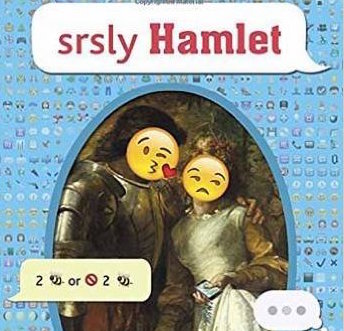One of the perpetual cycles in education is harnessing of whatever is popular in youth culture at the time in order to ‘engage’ students. The current gimmick de jour is with Pokemon Go, a virtual reality mobile phone game that has taken the world by storm. Several ‘hints and tips’ websites offer ways of using this technology in the classroom. For example, in order to engage students in History you could “Create a timeline that shows the history of Pokemon and the other Pokemon games.” Last year English teachers were treated to a series of books on how to use emoticons to teach Shakespeare. Titles included ‘Srsly Hamlet,’ ‘Yolo Juliet’ and ‘Macbeth #Killingit.’

One of the main justifications for these kinds of approaches is the notion that kids will be engaged in subjects they would otherwise not be, and it’s a way to “get them involved.” Apart from the fact that engagement is a very poor proxy for learning, using fads and gimmicks to interest children reveals a more troubling belief that you somehow need to ‘trick’ kids into being interested in things, that they couldn’t possibly be captivated by Shakespeare, Henry VIII or Newtonian Physics without first having it go through the filter of their own immediate interests.
Clearly teachers have a job on their hands competing against the immediacy of mobile phones and the Internet and a dwindling attention span but the strategy of ‘fighting fire with fire’ might not be the best approach here. While well intentioned and indeed ‘engaging,’ does using this kind of approach lead to effective learning? This cautionary tale from David Didau would question that:
I once observed a history lesson in which the teacher had as her stated aim that her class should learn what life was like for Irish peasants during the Potato Famine. She decided to do this by hiding potatoes around the classroom. The kids absolutely loved it! They were highly engaged from the word go and had enormous fun working out the likely hiding places for potatoes. They learned an awful lot about where it was possible to hide a potato in a classroom. They then wrote about the experience of life as an Irish peasant. But because the activity had taught them nothing about the life of an Irish peasant, their responses were poor. The other teacher that I observed the lesson with had covered their pro forma with enthusiastic scrawl and was convinced they’d seen something outstanding. But, what did they learn? I asked. But they absolutely loved it! They replied.
The obsession with novelty in education appears to happen at all levels of school life with many school leaders adopting gimmicks and fads for whole school policies with little or no evidence they are effective. Whole school policies on marking for example come and go but can leave a trail of destruction behind them. As Alex Quigley argues “Anything that distracts teachers and school leaders from improving teaching and learning are cumbersome tools that serve only to weigh us down.”
The other thing is that what many teachers fail to realise is that as soon as adults being appropriating youth culture it ceases to become theirs and it loses its radical appeal. Is there anything more tragic that the ageing teacher who attempts to adopt youth slang in order to ‘relate’ to kids? 
As an English teacher I feel an instant resistance to the adoption of gimmicks in the classroom. Reading is a sacramental act, a form of meditation that can transport children to chimerical worlds and offer them new ways of understanding the human condition beyond their own immediate interests. By reading about the struggles of characters in a novel or a play they are able to view their own struggles in a way that was previously unavailable to them.
Reading is hard to do in 2016 and requires commitment to something beyond immediate pleasure in order to gain richer reward. Getting kids to wander around the playground playing Pokemon Go is simply keeping them busy.
Using fads and gimmicks not only depreciates the process of learning but also reveals a contempt for the experience of being absorbed in something for its intrinsic worth. It also sends out a message that, whether we are aware of it or not, is surely negative. By using text message emoticons to teach Hamlet we are tacitly saying “you are not really able to handle this.”
Using fads and gimmicks presumes that all kids are interested in the same thing. One thing we might want to consider is that by using them we could be possibly be disengaging students as opposed to engaging them. As Martin Robinson writes:
I’ve enjoyed seeing my daughter play the game, we have had fun exploring and noticing things but none of this is in the detail or depth I would call educational, nor is it edutainment, it is play, and that is fine as far as it goes; I love play. But I pity my little ‘un if she has to go back to school and comes across an enthusiastic teacher who has come up with a term’s work based on Pokémon Go in order to engage her interest, it will more likely enrage her to disinterest.
Surely a central part of the mission of being a teacher is to introduce kids to things beyond their own immediate borders? To initiate them into new ways of seeing, new ways of thinking and to endow them with a wider understanding of the world in order to be able to navigate the troubling waters they sometimes find themselves in.
As Martin says, playing Pokemon Go has its own intrinsic worth for kids that is just as valid as anything else but whatever it is, it’s not learning. By insisting that the only way kids can learn is by being distracted into learning, we are offering them a debased view of the process itself.
Teachers should model the types of behaviours we would like to see in children. By modelling an effusive love of subject and showing how it has transformed our own lives as adults we can begin to show how it can transform their own lives as children.
Leave a comment